Analysis of 16S rRNA metagenomic experiments, online
General context
This training will start with the presentation of a 16S pipeline (http://lotus2.earlham.ac.uk/) in a Galaxy environment.
This will enable the preprocessing of the data going from raw reads to taxonomic tables and phylogenetic trees.
The 2nd part of the training will give an overview of numerical ecology and takes part entirely in R.
Processing and statistical analysis of 16S rRNA metagenomic experiments using R & Lotus pipeline.
The following analytical steps from raw data to communicable results will be on the program:
- Metagenomic experiment planning, execution and analysis
- Analyzing amplicon sequencing data with up-to-date tools and how to increase the quality of ASVs and OTUs, when to use what technique
- Post-clustering of ASVs to avoid intra-genomic ASV false-positives
- Working with low-biomass experiments, removing exogenous contamination in several scenarios
- Numerical ecology focused analysis workflow for both metagenomic and amplicon sequencing based studies
- Analysis of alpha/beta diversity
- Univariate statistics to identify species enriched in sample groups
- Multivariate statistics and visualization to identify clusters of samples
- Assessing microbial communities based on ecological principles and species distributions
The training is intended for people who have some experience with R. If you have no experience with R, you can follow our R introduction training first.
Trainers
Falk Hildebrand
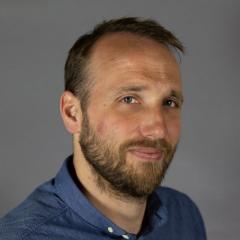
Falk Hildebrand is a bioinformatician with a passion for microbial ecosystems, bacterial evolution and developing computational systems to tackle these subjects in a combined perspective. Falk joined Earlham Institute in early 2019, where his new Hildebrand Group (also at Quadram Institute) will be developing metagenomic tools for tracking bacterial strains at high resolutions, to predict their genomic capabilities and explore their associations to diseases.
During his early career, Falk was working at the University of Constance (Germany) and the University of Sussex (UK) on bacterial evolution and tracking outbreaks of pathogens through following changes in their genomes. Moving from a genome centric view to a metagenomic view of whole microbial ecosystems, he worked during his PhD at the University of Brussels (Belgium) on bacterial associations to complex diseases such as IBD, obesity and Diabetes. For this, Falk developed bioinformatic pipelines to process 16S data (LotuS) as well as the statistical tools.
During his postdoc at EMBL Heidelberg (Germany), Falk continued his research on association to the human microbiome of complex diseases such as Diabetes and Parkinson’s disease, among others. His interests soon developed to track strains in the metagenomic datasets, as well as de novo assembling genomes from metagenomes. These techniques are mostly applied to the gut microbiome of mammals. Another interest of his is environmental metagenomics. For example, in 2018 he proved that in soils more fungi are usually connected to more antibiotic resistance in bacteria, and this is true on a local but also global scale.
Ezgi Özkurt
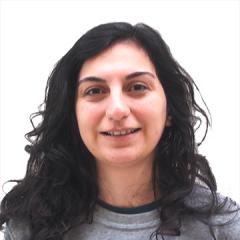
Ezgi was born in Istanbul, Turkey. She studied Molecular Biology and Genetics at the Middle East Technical University, Ankara and received her B.Sc. in 2014. She continued her education at the faculty of Biology in the same university where she obtained her M.Sc. diploma in 2015.
Ezgi followed her interest for evolutionary biology and continued her studies at the Max Planck Institute for Evolutionary Biology in Germany, working within the Environmental Genomics group as PhD student. She obtained her PhD degree in 2020.
Ezgi is currently working as a PostDoc in Hildebrand group. Her main interests are metagenomics data analysis and vertical transmission of microbial communities.
Joachim Fritscher
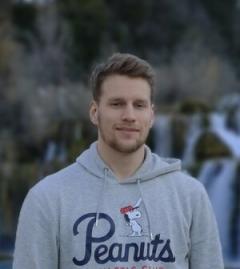
Joachim Fritscher studied Bioinformatics in his BSc and MSc. He got into metagenomics at the end of his MSc and wrote his thesis about a k-mer based taxonomic classifier for metagenomic reads using a protein reference.
Now Joachim is trying to use the k-mer based approach as well as other methods to improve the resolution of taxonomic classification and SNP calling to strain level. He's also striving to learn and apply new methods on biological data and making them performant with C++.
Stefano Romano
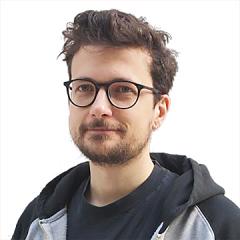
Stefano Romano studied at the “Sapienza” University of Rome and completed his PhD at the Max Planck Institute for Marine Microbiology in Bremen, Germany. Before moving to the Quadram Institute Bioscience, he worked at the University College Cork in Ireland and at the University of Vienna, Austria.
Stefano's career path follows the view of the Chinese philosopher Lao Tzu, who said “Life is a series of natural and spontaneous changes”. He has been involved in several projects investigating marine and freshwater microorganisms, free-living and symbiotic bacteria, basic microbiological aspects and biotechnological applications. All these topics fell under his main interest of understanding the mechanisms bacteria use to interact with their host and its microbiota in a changing environment.
At the Quadram Institute Stefano Romano studies the role of the human-microbiota in aging, focusing particularly on the microbiota-brain-gut axis to understand the interaction mechanisms underpinning host-microbiota interaction and to translate these findings into improved therapeutic interventions. He's also the manager of the Fecal Microbiota Transplant facility in collaboration between the Quadram Institute Bioscience and Norfolk and Norwich University Hospital.
Ángela Del Castillo Izquierdo
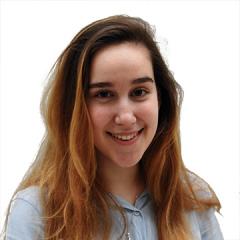
Ángela Del Castillo Izquierdo is a MSc by Research post-graduate student within the Hildebrand group as part of the Gut Microbes and Health ISP. She's investigating the microbial composition from a multikingdom perspective across different diseases. Her research interests include microbial ecology and evolution, population genetics and bacterial pathogenesis.
Prior to joining QIB she received my BSc (Hons) Biology from the University of York in 2019, where she undertook a project investigating the DNA segregation factors involved in plasmid segregation and carry out a dissertation studying the mechanism responsible for the segregation of a low copy number plasmid in Sulfolobus solfataricus archaeon at Barillà group
Rebecca Ansorge
Rebecca Ansorge studied at the University of Bremen, Germany where she did a BSc in Biology, and a MSc in Microbiology at the International Max Planck Research School of Marine Microbiology. She obtained her PhD from the Max Planck Institute for Marine Microbiology in 2019, studying animal-microbe symbioses mostly using metagenomics. She is fascinated by strain diversity, and its implications in host-microbe systems and interactions.
Rebecca is currently a PostDoc in the Hildebrand group at Quadram Institute Bioscience, deepening her research on microbial strain-level variation and microbial pangenome diversity in the human gut microbiome. She is particularly interested in illuminating the relevance of this fine-scale diversity in health and disease
Nicola Soranzo
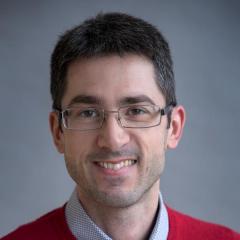
Nicola Soranzo works at the Earlham Institute (EI) since 2014 as part of the Data Infrastructure and Algorithms group. He manages a Galaxy web server used to run large-scale bioinformatics analyses in an accessible, reproducible and transparent way. Nicola has been collaborating for many years on the open source development of the Galaxy platform and of Galaxy tools and workflows.
He is co-author of over 25 peer-reviewed journal papers and regularly delivers training for the Carpentries and the Galaxy Training Network.
Since 2018 Nicola is also Technical Coordinator for ELIXIR-UK, the UK Node of ELIXIR (a pan-European organization coordinating life science resources into a single research infrastructure). Additionally, Nicola is one of the leaders of the Galaxy Community in ELIXIR.
Prior to joining EI, Nicola completed a master's degree in Computer Science at the University of Udine and a PhD in Functional and Structural Genomics at SISSA, Trieste, then has worked for 5 years on Systems Biology and Galaxy at CRS4, Italy.




